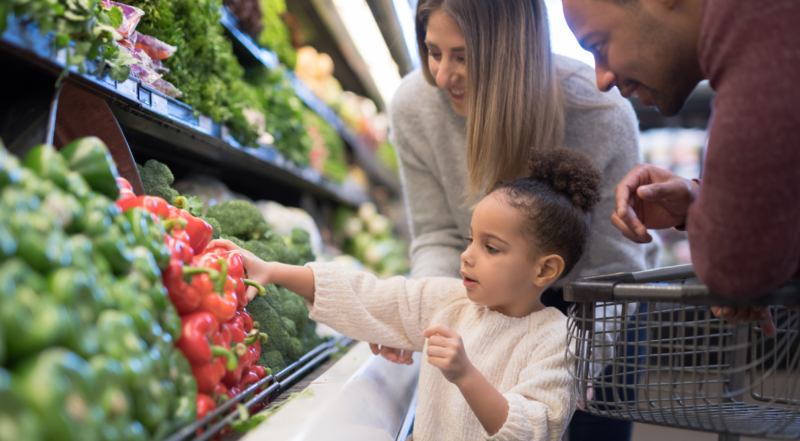Continuing to Meet the Need With Nutrition Incentive Programs

With the cost of many grocery items hovering at historic highs, more and more Americans simply don’t have enough to eat. Without assistance, they don’t know where their next meal is coming from. The need for the Supplemental Nutrition Assistance Program (SNAP, formerly known as food stamps) has never been greater, with more than 40 million Americans relying on the program to put food on the table. And yet, even with SNAP, healthy and nutritious food is often out of reach for families with low household incomes.
Some of the most vulnerable consumers are forced to make daily decisions between buying healthy and affordable food. For Michiganders, that’s where programs like Double Up Food Bucks can help. Participants in SNAP are automatically eligible to use the Double Up program at one of its 234 participating farmers market and grocery store locations. Double Up incentivizes the purchase of healthy food by matching, dollar for dollar, SNAP purchases of fresh fruits and vegetables, up to $20 per day. As one Michigan shopper put it, Double Up is the difference between eating fruits and vegetables and going without. “I couldn’t afford [fresh fruits and vegetables] without the program,” she said. “I wouldn’t be able to try to help my grandmother…and maintain her where we’re at. It’s just me trying to hold things together as much as possible,” she said. “Double Up Food Bucks has helped.”
 For many Michiganders, the program is essential. And it’s not only consumers who benefit. All Double Up purchases at farmers markets support local agriculture. And during peak growing season, participating grocery stores stock more locally grown fruits and vegetables in their produce sections. Said one Michigan farmer: “It’s a program that supports small-scale Michigan vegetable growers while also increasing access to fresh, healthy foods for low-income folks — a win-win.”
For many Michiganders, the program is essential. And it’s not only consumers who benefit. All Double Up purchases at farmers markets support local agriculture. And during peak growing season, participating grocery stores stock more locally grown fruits and vegetables in their produce sections. Said one Michigan farmer: “It’s a program that supports small-scale Michigan vegetable growers while also increasing access to fresh, healthy foods for low-income folks — a win-win.”
As farmers markets and Double Up grocers experience the benefits of increased purchases of local produce, the economic benefits ripple outward into communities, making the program a triple win. “We’re able to get assistance and then we’re putting it right back into our community and back to the farmers near our home, and so they’re able to get assistance,” said one SNAP shopper. “It makes for a more thriving market, a more thriving community, socially and economically.”
“Trying to eat healthy, local foods costs hundreds of dollars a month no matter where I shop,” added another. “Not having to worry about this takes so much of the burden off of my plate because otherwise, I would be spending about [as] much as my rent on food, and after that cost I wouldn’t normally have much money left over.”
The Double Up program has weathered especially challenging times recently, such as the COVID-19 pandemic, even while helping to mitigate some of the effects of the crisis and take on persistent high inflation that has disproportionately hit food prices. Yet food insecurity predates the coronavirus and inflation, and presents a growing problem in the U.S. Double Up remains an essential community resource no matter what’s happening in the world around us. “We definitely saw a spike in usage during the pandemic — and a lot of new folks,” said Cassidy Strome, Associate Director of Double Up Food Bucks Michigan at Fair Food Network. “And still, even post-pandemic, we’re seeing elevated participation in the Double Up program.”
“People really appreciate — and rely on — Double Up Food Bucks,” she added.
Fair Food Network’s Double Up Food Bucks is a nutrition incentive program that aims to increase fruit and vegetable purchasing among people who use SNAP as part of their monthly food budget. The program is funded by the Gus Schumacher Nutrition Incentive Program (GusNIP), a grant program administered by the United States Department of Agriculture (USDA) with funds appropriated by the 2018 Farm Bill. The Michigan Department of Agriculture and Rural Development (MDARD) is firmly committed to creating marketing opportunities for Michigan fruit and vegetable growers and provides some of the matching funding for Double Up in Michigan.







